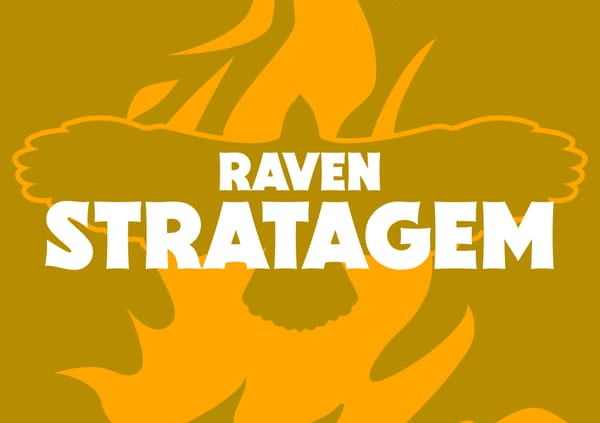Meet the Black Company™

The Black Company, the last of the Free Companies of Kathovar, moves from one war to another, from one employer to the next.
Always fighting. Never for free. And no matter who it’s fighting for, the Company always upholds its contract.
These men are ruthless and violent, and they do not concern themselves with such trivial questions as whether they are fighting on the good side or the bad side. There are no good sides in war, no good deeds. The only good side is the side of winning, and that is the side that the Company prefers fighting for.
That is until it meets its new employer…
Centuries ago, the dreaded Dominator, and his lover, the Lady, seduced and subjugated ten of the most powerful sorcerers of the age into his service and established a cruel and merciless empire in an era that came to be known as the Domination.
A century later, the Domination was ended, overturned by a rebel known as the White Rose. The Dominator, the Lady, and the sorcerers known as the Ten Who Were Taken were all sealed in tombs from which they were never to return.
Almost 400 years later, the Lady broke free of this prison, releasing the Ten Who Were Taken with her and started waging a new war against the world, ushering in another age of dread and despair. The Lady is almost as strong as the Dominator was in his prime, and the Taken, these gods among men, whose very footsteps shake the ground they walk on, instil fear into the heart of anyone who so much as feels their presence. Together they should make this war a quick one. But the rebel opposition is strong.
To win, the Lady and the Taken need the military might and the strategic genius of those for whom war is the very lifeblood…
These Annals, written from the point of view of Croaker, the Company’s Annalist, chronicle the history of the Black Company, starting with the last days of its service to the Syndic of Beryl, when the Company is approached by a prospective, albeit mysterious new employer.
Who just so turns out to be one of the Taken.
A grimdark masterpiece
Almost 40 years after it was first published, The Black Company by Glen Cook is one of the freshest books I have ever read.
Published 10 years before George R. R. Martin’s A Game of Thrones and 20 years before Joe Abercrombie’s The Blade Itself, The Black Company is rooted in, and indeed it defines, the grimdark genre. It is violent and cruel, merciless and dark… But unlike many of the later works with more “realistic” sensibilities, The Black Company is also undeniably fun.
One of my greatest criticisms of the more popular grimdark books, such as the ones mentioned above, is that sometimes it feels as if they could be just alternate histories of our own world, with a tiny bit of mysticism sprinkled in. Their unwillingness to embrace the more fantastic elements of the fantasy genre makes them feel almost like a betrayal. It is as if they take themselves too seriously to want to be associated with such frivolous things as magic and fantasy.
But not The Black Company.
The Black Company is unapologetic in its pursuit of fun, from its colourful cast to its imaginative use of magic (which there is a lot of!). The pacing is quick and snappy, and there was never a point where reading it felt dull and my mind didn’t feel stimulated by the fantastic (and sometimes quite dark) concepts introduced by Glen Cook.
It’s always more fun when there’s company, and what better company than the Black Company.
A colourful bunch
The Black Company is a brotherhood of mercenaries, one made up of many colourful characters, all of them having one thing in common.
To join the Company, a man must leave his old life behind. He must say goodbye to his friends and family and forsake all his possessions. To join the Company, he must make a choice that no sensible person would easily make. A choice to live the rest of his life in fear.
Because you see, there are no heroes in the Black Company. There are only soldiers, and soldiers die.
But in joining the Company, a man will find camaraderie and acceptance. There is a shared understanding among the men of the Company that is never voiced: If you are here, you have indeed lived a life of hardship and pain, a life that you would rather not talk about. And here, you are among your own kind. You belong.
The Black Company is a family that takes care of its broken men.
And after spending time with these guys—Croaker, Raven, One-Eye, and others with equally as colourful names, with their bickering and banter, and with the crazy antics of their mages—they became my family as well. Whether they are all just sitting around, waiting for their devious plans to come to fruition, or knee-deep in mud during battle, the men of the Black Company are always fun to be around.
Glen Cook manages to paint characters who are cruel, merciless, and larger than life, yet still only human in their needs and wants.
Croaker, from whose quill this story flows, is great at introducing us to this patchwork family. His voice shines through the pages of the book with the grit and the rasp (hence the name, I presume) of a seasoned surgeon and soldier. His writing is cynical and self-deprecating, yet somehow still friendly and warm.
The breakneck pace
One of the things that make The Black Company so refreshing to read is its breakneck pace.
Many times throughout the book, we are dropped in the middle of the action with little to no explanation as to what’s going on, having to piece it all together from bits of action and dialogue.
The first couple of times this happened, I had to go back to the previous page and check if I hadn’t missed anything, or even if there were pages missing. And while that did break the immersion for me, once I realised that this is simply how life is now, I could roll with it and enjoy the ride. Glen Cook doesn’t feed us all the information; he lets us engage with the story and find stuff out for ourselves.
And despite being a fantasy book with a colourful world and rich worldbuilding, The Black Company doesn’t have a map. Now that’s something I imagine would really break the immersion in this kind of book. Whenever a new place would get mentioned, I trust I would not be able to help myself but go back to the beginning of the book to see where that is on the map.
But no, the wider world is not important. What’s out there is not important. What is important is where we are now and all the bodies we need to get through to get where we are going.
The trend in modern fantasy has definitely been to draw things out and slowly and methodically set up the world, the characters, and the plot. What we’re left with are these doorstoppers that take weeks to get through and digest. Compared to many of these, The Black Company (with its 319 pages) is a relatively short book, yet Glen Cook manages to pack so much plot in it.
He does this by using a very sophisticated and streamlined formula. It goes something like this:
Oh, looky here, One-Eye, Goblin, Raven, and Elmo are playing cards, oh look, Raven has left the table (his chair now taken by Pickles) so One-Eye can start cheating again, what’s that? Captain is talking to one of the Taken? About… BAM! Action, blood, guts, magic, magic and blood and guts everywhere!! And back to cards.
And just like that, Glen Cooks tells you all you need to know in general, really:
- Who’s good at cards.
- Who’s still alive.
Publishing history
Published in 1984, The Black Company is the first in a series of 11 books. The series is furthermore divided into 3 sub-series, one spin-off novel, and one “lost history” novel set between The Black Company and Shadows Linger. The books, in publication order, are:
The Books of the North
The Black Company (1984)
Shadows Linger (1984)
The White Rose (1985)
The Silver Spike, a spin-off (1989)
The Books of the South
Shadow Games (1989)
Dreams of Steel (1990)
The Books of Glittering Stone
Bleak Seasons (1996)
She Is the Darkness (1997)
Water Sleeps (1999)
Soldiers Live (2000)
Port of Shadows, a “lost history” (2018)
Now, getting into a series of 11 books might seem a little daunting, but most of the books in the series are under or about 350 pages, and Tor Books has, incredibly helpfully, collected the books in 4 omnibus editions (published 2007 through 2010) which can still be easily found today.
The omnibus editions contain all the books in the series except Port of Shadows, which was published much later in 2018.
Conclusion
The Black Company is one of those books I had wanted to read ever since I first read about it in all those Top 10 lists I used to devour back when I was a kid, and now that I finally got to read it, I can honestly say that it has lived up to the hype as one of the classics of fantasy literature.
The book is atmospheric, gripping, and unabashedly fun. The worldbuilding is deep and intricate, the characters are quick-witted and tough, and—for those of us still into that kind of thing—there’s magic galore!
As such, I don’t think The Black Company gets the recognition or the attention it deserves nowadays. Sure, the genre has moved in a different direction since 1984, heck, it has changed a lot even in the past 10 years, but with its blazingly fast pace and imaginative plot, The Black Company is still as fresh as anything published in 2023—and I imagine the same thing will be true in another 40 years.
So, in conclusion, if you want a fast and engaging read that makes you feel like you belong (with a group of hardened war criminals), The Black Company might be the book for you!





